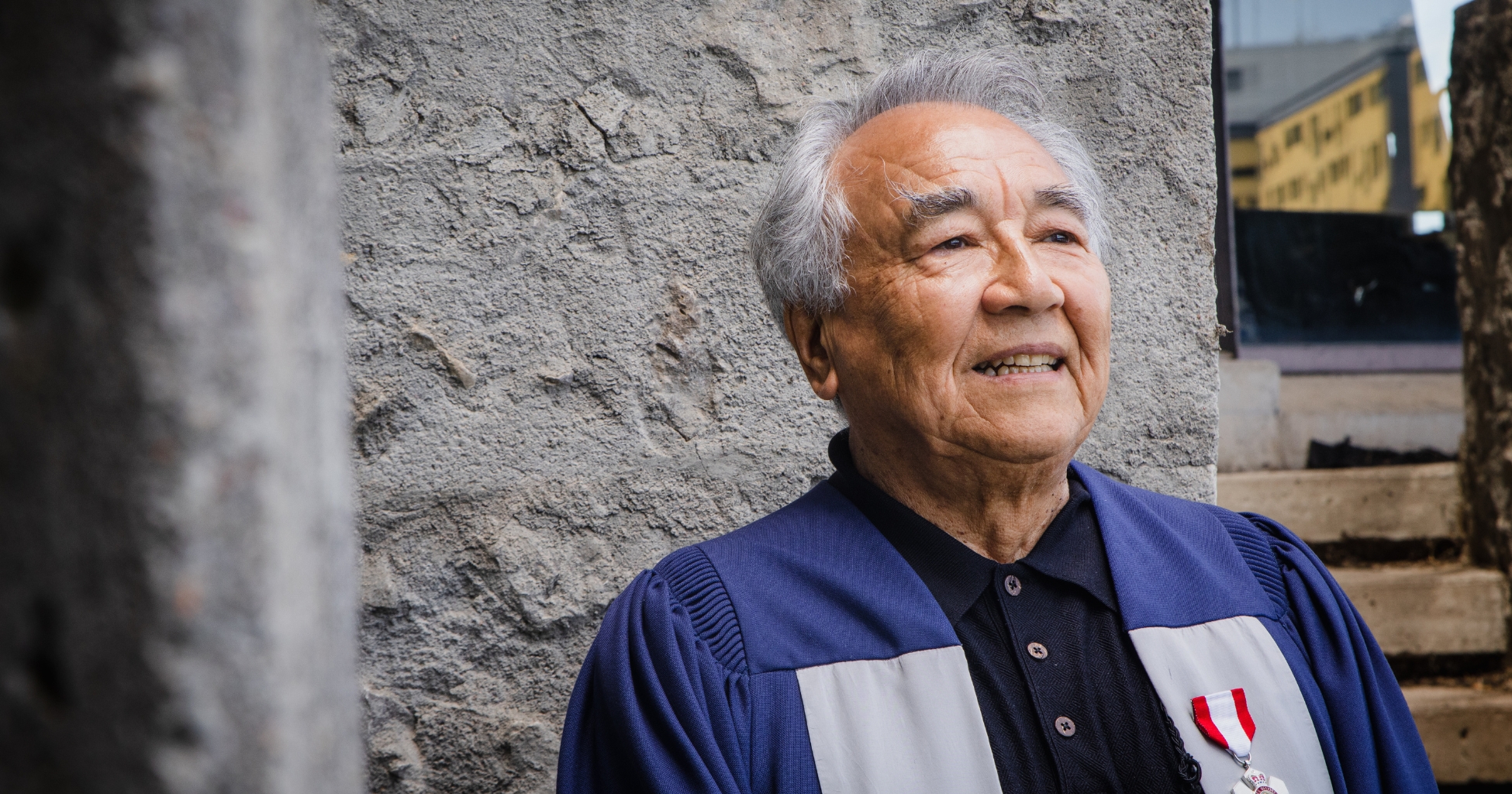How a 24-Year-Old Helped Shape Trent University’s Indigenous Studies Program
A chance encounter between Harvey McCue (Waubageshig) C.M. ’66 (Champlain College) and President Tom Symons ignited a groundbreaking program at Trent
April 10, 2025

Harvey McCue (Waubageshig) C.M. ’66 (Champlain College) is receiving a Lifetime Achievement Award for his influential work advancing the health, well-being, and education of Indigenous youth and people.
It all began in the fall of 1968, when as a 24-year-old student at Trent University and the newly-elected President of the Champlain College student council, McCue received an invitation to the office of then University President Tom Symons. President Symons informed him he had a keen interest in First Nations, Inuit, and Métis communities, and as president, he wanted to pursue that interest within the academic realm.
“As a current student, I didn’t know Tom at the time. This was just after Thanksgiving, and we started a conversation,” McCue recalls. “He said, ‘Harvey, what would you recommend I and the university undertake? I was flattered by the question, it wasn’t something that I had prepared for, and it was totally off my radar.”
At the time, McCue recalled an article that highlighted the disparity in university attendance among Indigenous students in the late 1960s, noting that while there should have been 2,000 Indigenous students attending university in Canada at the time, there were only 164.
“I was part of this small cohort,” McCue remarked. “I said to President Symons, ‘If you can create something in the University that would attract Indigenous students, that would be a tremendous accomplishment.’”
Following collaborative efforts with colleagues, including Dr. Kenneth Kidd, it was concluded that establishing a program of study centred on Indigenous issues and topics would be a valuable addition. By September 1969, the Indian Eskimo Studies program (now Indigenous Studies) launched at Trent with 28 students, including four Indigenous students. The program was the first of its kind in Canada, and only the second in North America, marking a significant milestone in Canadian higher education.
Today, the Chanie Wenjack School for Indigenous Studies at Trent is home to multiple academic programs at both the undergraduate and graduate levels. Both Indigenous and non-Indigenous students studying in the School gain a deeper understanding of Indigenous peoples, cultures, histories, Knowledges, and contemporary narratives in Canada and beyond. In 2018, all undergraduate students at Trent were mandated to complete at least 0.5 credit from the approved Indigenous course list as part of their degree requirements, further demonstrating the lasting impact and importance of Indigenous learning at Trent.
McCue continued his career outside of Trent, holding various influential positions including director of education at the James Bay Cree School Board, executive director of the Mi’kmaq Education Authority, and the first Indigenous director general of what is now known as Indigenous Services Canada. His Trent University ties have remained, serving on the Trent Board of Governors, providing advice on new programs and grant applications, and receiving an honorary degree in 2024.
In 2020, McCue was appointed to the Order of Canada, one of the country’s highest honours, in recognition of his contributions to the health and well-being of Indigenous youth and his influential leadership in education.
McCue’s prestigious Lifetime Achievement Award from Indspire celebrates his contributions to Indigenous education and advocacy over a career spanning more than four decades, and is especially important to McCue, considering he was nominated by his peers. The ceremony will be available to view on CBC on June 21, in recognition of National Indigenous Peoples Day.
“It’s very special, as it’s recognition from Indigenous people from across the country,” McCue remarks. “I’m very honoured, and very flattered to be receiving the award.”
Learn more about the Indigenous programs at Trent, and the University’s rich legacy in Indigenous studies.